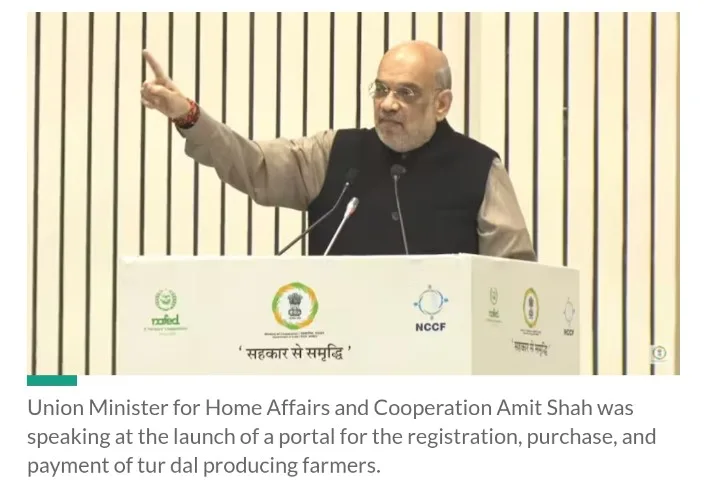In a groundbreaking move, Home Minister Amit Shah announced the imminent launch of a portal connecting corn farmers directly with ethanol-producing factories. This initiative, revealed during the inauguration of a portal for tur dal farmers, aims to enhance India’s ethanol production and contribute to Prime Minister Narendra Modi’s target of achieving 20 percent blending of ethanol with petrol.
Shah elaborated on the forthcoming portal, stating that the National Agricultural Cooperative Marketing Federation of India (NAFED) and National Cooperative Consumer’s Federation of India (NCCF) would facilitate the registration, purchase, and payment process for corn farmers. The integration of corn farmers with ethanol factories is envisioned to streamline the production process, ensuring farmers receive the Minimum Support Price (MSP) for their produce.
“Your farms will not be growing corn but will become petrol-producing wells,” Shah explained, emphasizing the transformative nature of the initiative.
The government’s overarching goal is to achieve 20 percent ethanol blending in petrol by the fiscal year 2025-26. The proposed portal is a strategic step towards realizing this objective by linking farmers directly with ethanol-producing facilities.
In addition to the corn-focused initiative, the portal inaugurated by Shah also aims to boost tur dal production by providing farmers with better prices, a streamlined selling process, and direct bank transfers for payments. Farmers registering on the portal gain access to sell their tur dal produce at either the MSP or the prevailing market price, whichever is higher.
Shah highlighted the significance of self-reliance in pulse production, expressing the government’s commitment to reduce dependence on imports. The portal’s implementation is anticipated to directly purchase 80 percent of the buffer stock from farmers, thereby minimizing reliance on tur imports.
With rising pulses inflation in the retail market, Shah urged farmers to embrace the challenge of achieving self-sufficiency in pulses by 2027, envisioning a scenario where India would not import any pulses starting from January 1, 2028.
The government’s multifaceted approach, encompassing initiatives like the portal for corn farmers and strategic interventions in pulse production, underscores its commitment to bolstering agricultural sustainability and achieving self-sufficiency.




